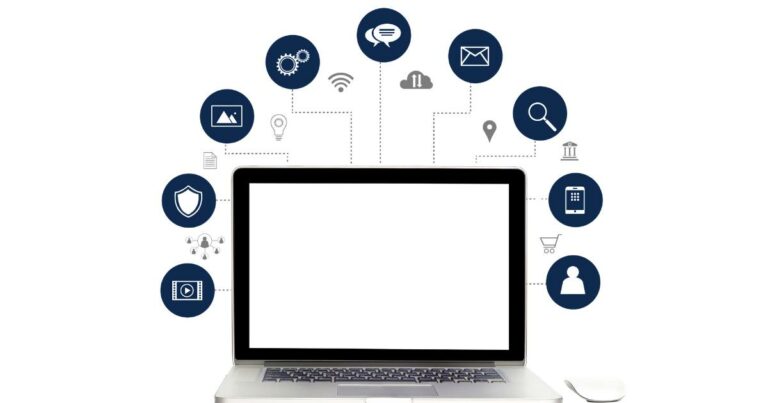
It’s no secret that work can be mentally exhausting. With the constant pressure to perform, meet deadlines, and manage team dynamics, it’s essential to give yourself some time to rest and recharge.
Allowing your mind to rest not only improves your mental well-being but also boosts your productivity and creativity. Just like your body needs sleep to function optimally, your mind needs rest to rejuvenate and work at its best.
When you’re continually pushing yourself without taking breaks, you’ll eventually experience mental fatigue. This can lead to decreased concentration, reduced creativity, and even burnout. Resting your mind is crucial for maintaining a healthy work-life balance, as it allows you to switch off from work and focus on other aspects of life.
Moreover, giving your mind a break is vital for long-term success. Numerous studies have shown that taking breaks during work can improve overall performance and job satisfaction. So, if you want to excel in your career, it’s essential to prioritize mental rest as part of your daily routine.
Signs That Your Mind Needs a Break
You might think that you can power through your workday without taking breaks, but this can be counterproductive. It’s crucial to recognize the signs that your mind needs a break so that you can take appropriate action.
Some common indicators include:
- Difficulty concentrating: If you’re struggling to focus on tasks and find your mind wandering, it’s likely that your brain needs a break.
- Decreased motivation: When you’re mentally exhausted, it can be challenging to find the motivation to complete tasks, even those you usually enjoy.
- Increased irritability: Mental fatigue can make you more irritable and reactive to minor issues, which can affect your relationships with colleagues.
- Reduced creativity: A tired mind is less likely to produce innovative ideas, limiting your problem-solving abilities.
- Physical symptoms: Mental fatigue can manifest as physical symptoms, such as headaches, muscle tension, or difficulty sleeping.
If you notice any of these signs, it’s essential to take a break before your mental exhaustion negatively affects your work performance and overall well-being.
Activities That Can Help You Rest Your Mind
There are numerous activities that can help you rest your mind during the workday. It’s important to find what works best for you, as everyone’s preferences and needs vary. There are many best business opportunities in the world that you can do.
Here are some ideas to help you get started:
- Take a walk: A short walk outside can do wonders for your mind. The change of scenery, fresh air, and physical movement can help reset your brain and improve concentration.
- Listen to music: Music can have a calming effect on your mind. Choose a relaxing playlist or your favorite tunes to unwind and recharge.
- Engage in a hobby: Engaging in a hobby, such as drawing, knitting, or reading, can provide a mental break from work and help you relax.
- Connect with others: Socializing with colleagues can offer a much-needed distraction from work and help you form stronger connections with your team.
- Practice mindfulness: Mindfulness exercises, such as meditation or deep breathing, can help you refocus your attention and calm your mind.
The Benefits of Taking Breaks During Work
Taking breaks during work offers numerous benefits for both your mental health and work performance.
Some of the advantages include:
- Improved focus: Regular breaks help prevent mental fatigue, allowing you to maintain focus and concentration throughout the day.
- Increased productivity: Studies have shown that taking breaks can boost productivity, as they allow your brain to recharge and return to tasks with renewed energy.
- Enhanced creativity: Giving your mind time to rest can stimulate creative thinking and problem-solving abilities.
- Reduced stress: Taking breaks can help you manage stress by allowing you to step back from work-related pressures and unwind.
- Better work-life balance: Prioritizing mental rest can help you achieve a healthier work-life balance, preventing burnout, and promoting overall well-being.
Challenges of Taking Breaks at Work
While the benefits of taking breaks at work are clear, it’s not always easy to incorporate them into your daily routine.
Some common challenges include:
- Time constraints: With deadlines looming and workloads piling up, it can be difficult to find the time to take breaks.
- Workplace culture: Some workplaces may discourage taking breaks, leaving employees feeling guilty or pressured to work continuously.
- Lack of awareness: Many people are simply unaware of the benefits of taking breaks and may not prioritize mental rest during the workday.
- Distractions: It can be challenging to disengage from work, even during breaks, with constant notifications and emails vying for your attention.
To overcome these challenges, it’s essential to adopt strategies that help you incorporate the rest into your workday.
How to Incorporate Rest into Your Workday
Here are some tips to help you make mental rest a part of your daily routine:
- Schedule breaks: Set aside specific times during the day for breaks, and stick to them. This can help you prioritize rest and ensure you’re taking the time you need to recharge.
- Set boundaries: Establish clear boundaries between work and rest, such as turning off work-related notifications during breaks or designating a specific area for relaxation.
- Communicate with colleagues: Let your colleagues know when you’re taking a break and encourage them to do the same. This can help create a supportive workplace culture that prioritizes mental well-being.
- Make it enjoyable: Choose activities that you genuinely enjoy, as this will make you more likely to stick to your break routine.
Mindful Breathing Exercises
One of the easiest ways to rest your mind during the workday is through mindful breathing exercises. These exercises can help you relax and refocus your attention.
Here’s a simple technique to try:
- Find a quiet space where you can sit or stand comfortably.
- Close your eyes and take a deep breath through your nose, filling your lungs completely.
- Exhale slowly through your mouth, releasing all the air from your lungs.
- Repeat this process for a few minutes, focusing on the sensation of your breath as it enters and leaves your body.
Stretching and Movement Breaks
Another effective way to rest your mind is by incorporating stretching and movement breaks into your workday. These breaks can help relieve physical tension and promote mental relaxation.
Here are a few ideas:
- Stand up and stretch your arms above your head, reaching for the ceiling.
- Gently twist your torso from side to side, loosening your back and abdominal muscles.
- Roll your shoulders in circles, both forward and backward, to release tension in your neck and shoulders.
- Take a short walk around your office or outside, allowing your body to move and your mind to reset.
Mindful Meditation
Mindful meditation is a powerful tool for resting your mind and promoting overall well-being. By practicing meditation regularly, you can train your mind to be more present and focused.
Here’s a simple meditation technique to try:
- Find a quiet space where you can sit comfortably with your back straight.
- Close your eyes and take a few deep breaths, relaxing your body.
- Focus your attention on your breath, observing the sensation of the air entering and leaving your body.
- If your mind wanders, gently bring your attention back to your breath.
- Practice this technique for a few minutes each day, gradually increasing the duration as you become more comfortable with meditation.
Conclusion
Incorporating regular breaks and activities to rest your mind at work is crucial for maintaining mental well-being and enhancing work performance. There are even many day programs such as Islam and mental health to promote the importance of taking care of mental health throughout the day.
By recognizing the signs that your mind needs a break and adopting strategies to prioritize mental rest, you can improve your focus, productivity, and overall job satisfaction. So, take the time to rest your mind during the workday and experience the benefits for yourself.





